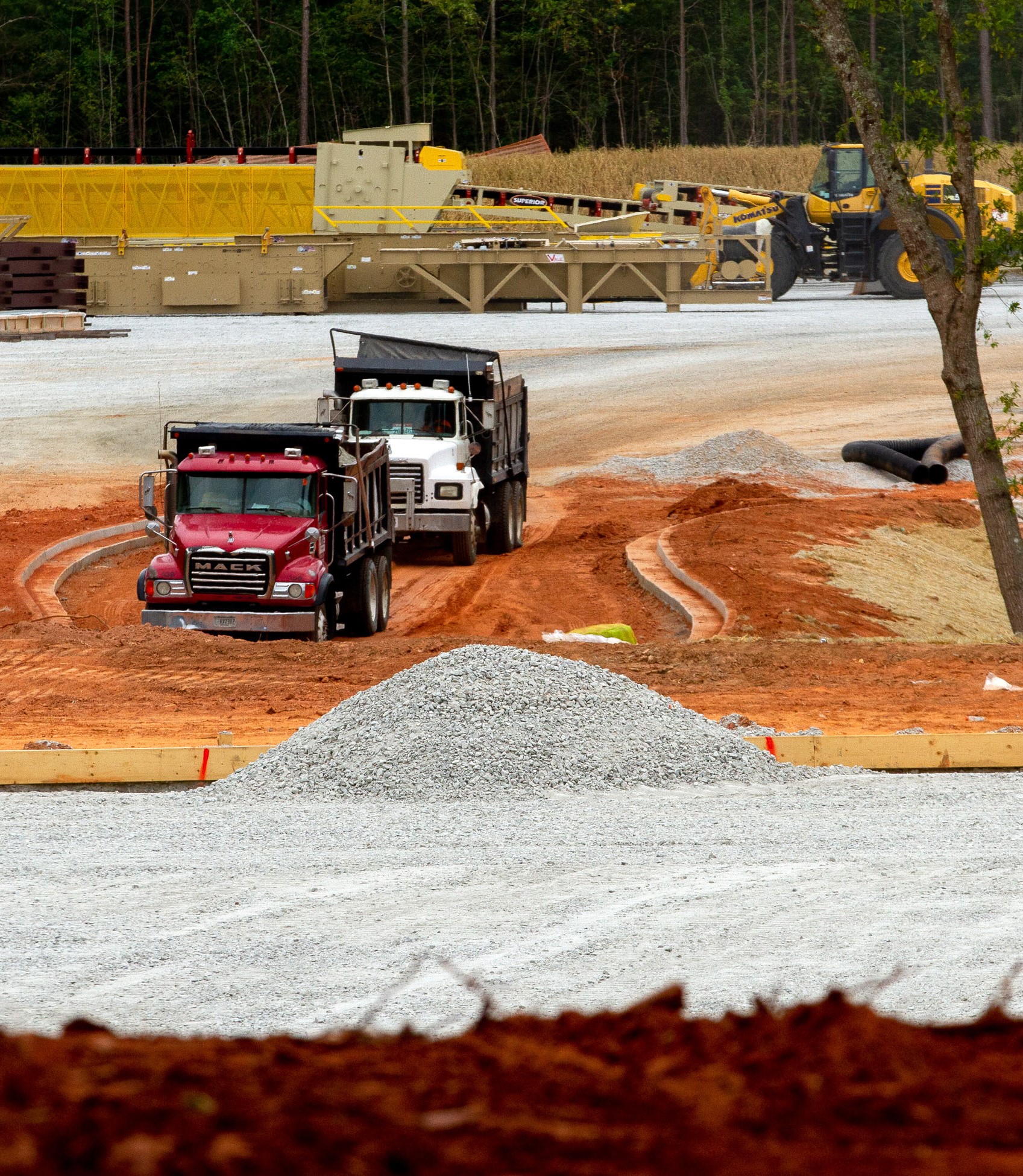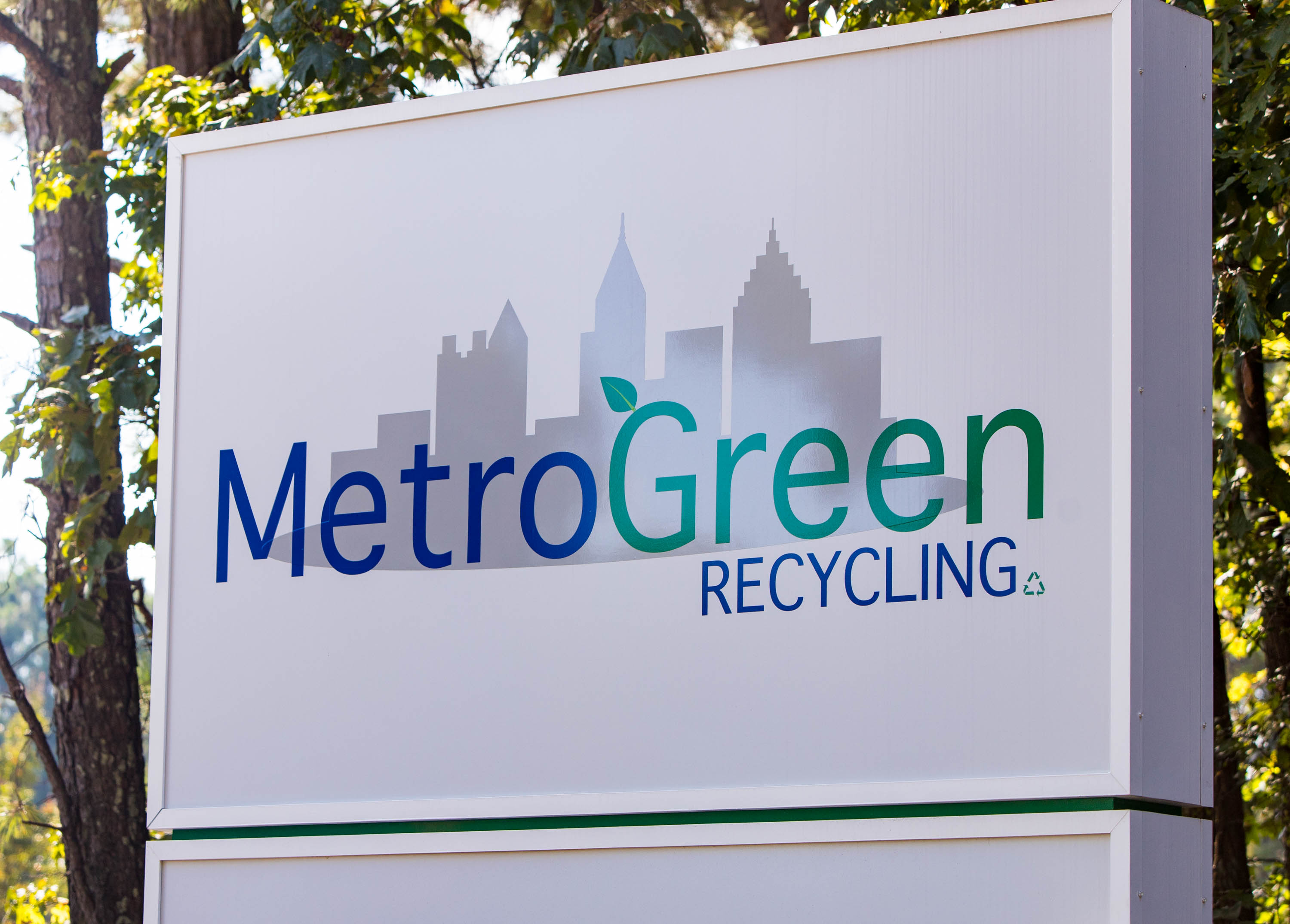Judge says controversial Stonecrest recycling plant can’t crush concrete

Neighbors of a controversial recycling plant in Stonecrest can breathe easier knowing that all work, including concrete crushing, must cease at the plant while a languishing legal case continues.
A judge ordered Metro Green Recycling to stop the crushing activity, which residents and activists said would kick up dust and create noise, because it fell within the parameters of an earlier stop-work order. DeKalb County Superior Court Judge Tangela Barrie did not find Metro Green in contempt of court for the concrete crushing, since her earlier injunction did not specifically suspend that activity, but she did order the company to stop immediately.
“The whole idea (of the stop-work injunction) was to protect the neighbors during this process,” Barrie said during a Tuesday motions hearing.
Matt Benson, the attorney representing Metro Green, said the company would respect the order and did not intend to violate her previous rulings.
“What Metro Green did was read the (stop-work) order that the court entered in the context in which it was entered and made a decision, reasonably, that it could crush concrete,” he explained during the hearing, which was conducted virtually.
Since Stonecrest incorporated in 2017, the concrete recycling plant has been a point of contention, with activists and politicians saying it improperly obtained a crucial work permit. Metro Green, which operated two plants in the Atlanta area at the time, began the process to open a third location near Snapfinger Woods Drive and Miller Road, a 50-acre site abutting neighborhoods.
Metro Green pitched the project to city and county officials, both of whom initially denied the proposal. However, Stonecrest’s founding mayor and former city manager would later endorse the project, prompting the Georgia Environmental Protection Division (EPD) to grant a solid waste handling permit, which allows facilities to take in unsorted construction debris for processing and recycling.
The issued permit sparked backlash — and eventually legal action — from DeKalb, the Stonecrest City Council and environmental activists. In August 2020, Stonecrest began a lengthy lawsuit that now involves the city, county and Citizens for a Healthy and Safe Environment (CHASE), an activist group that represents residents living near the plant, suing Metro Green, the EPD and its director.
April Lipscomb, an attorney for CHASE, argued Tuesday that Metro Green’s continued concrete crushing presented a health risk to residents and that it would not be allowed under Stonecrest’s zoning code, which Benson disputed. Lipscomb said the only way Metro Green can crush concrete outdoors is if their solid waste handling permit remains in place, which is the critical question of the pending lawsuit.
“The only way that activity could possibly be allowed is as an accessory use to a permitted use, but crushing concrete cannot be considered an accessory use to solid waste handling if the permit is revoked,” she said. Barrie’s previous stop-work order specifically suspended all work that required the permit.
The judge said that the spirit of her previous order was to stop all work that concerned neighbors until the case could be settled.
“If CHASE ultimately succeeds on its claim and if Metro Green’s permit ultimately gets revoked, Metro Green will not be able to crush and stomp out concrete unless and until it gets a new business license from the city of Stonecrest that allows it to operate as a recycling facility instead of a materials recovery facility,” Barrie said, adding that the city rejected Metro Green’s business license and certificate of occupancy applications for 2022.
The case is scheduled to go to trial the week of June 13, but several summary judgment motions are pending and could settle the lawsuit before a trial takes place. After about three hours of discussion Tuesday, Barrie ended the motions hearing and said she’d try to schedule another one soon
Metro Green events in Stonecrest
-
Nov. 8, 2016
Residents in south DeKalb County voted to form Stonecrest. Jason Lary would soon be elected as the city’s first mayor.

-
June 17, 2018
Metro Green Recycling contacted Tracy Hutchinson, the DeKalb Sanitation Division Director, to pitch a construction and demolition recycling facility project. She denied the request, saying it isn’t consistent with the county’s Solid Waste Management Plan.

-
Oct. 31, 2018
Michael Harris, Stonecrest’s former city manager, wrote a letter to the state Environmental Protection Division (EPD) that said Metro Green’s plans complied with the city’s zoning laws and county’s solid waste plan. Lary previously sent letters approving the project in May 2018.

-
Dec. 3, 2018
The EPD received Metro Green’s application for a solid waste handling permit, which includes references to the Stonecrest letters of approval.

-
Oct. 1, 2019
The EPD, overseen by Director Richard Dunn, issues the permit.

-
July 1, 2020
Lary issued a stop-work order on the construction on Metro Green. However, he removed the stop-work order 13 days later, citing fears of potential legal action.

-
Aug. 6, 2020
At the request of the City Council, Stonecrest filed a temporary restraining order lawsuit against Metro Green and DeKalb County to try to stop ongoing construction. The EPD and Dunn would be added as defendants in September.

-
Dec. 30, 2020
The Citizens for a Healthy and Safe Environment (CHASE), a citizen advocacy group, was added as a plaintiff.

-
Feb. 5, 2021
CHASE files a motion for a temporary restraining order, attempting to stop current and future construction at the Metro Green site.

-
Sept. 15, 2021
DeKalb Superior Court Judge Tangela Barrie granted CHASE’s motion for a temporary restraining order, preventing Metro Green from continuing work on the site until the case concludes.

-
Oct. 28, 2021
Judge Barrie set a trial date for the week of June 13, 2022.

-
Dec. 8, 2021
The Stonecrest Board of Appeals denied Metro Green's appeal for its certificate of occupancy, leading the company to file an appeal in DeKalb County Superior Court. That appeal remains pending.



